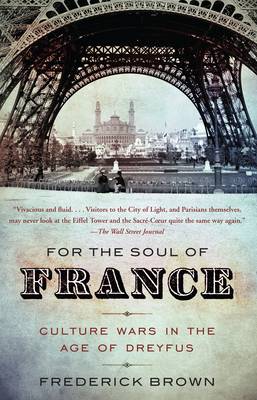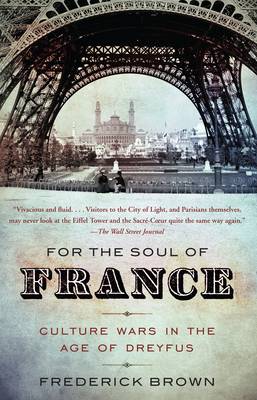
- Retrait gratuit dans votre magasin Club
- 7.000.000 titres dans notre catalogue
- Payer en toute sécurité
- Toujours un magasin près de chez vous
- Retrait gratuit dans votre magasin Club
- 7.000.000 titres dans notre catalogue
- Payer en toute sécurité
- Toujours un magasin près de chez vous
31,45 €
Description
In the aftermath of the Franco-Prussian War of 1870-71, a defeated and humiliated France split into cultural factions that ranged from those who embraced modernity to those who championed the restoration of throne and altar. This polarization--to which such iconic monuments as the Sacre-Coeur and the Eiffel Tower bear witness--intensified with a succession of grave events over the following decades: the crash of an investment bank founded to advance Catholic interests; the failure of the Panama Canal Company; the fraudulent charge of treason brought against a Jewish officer, Alfred Dreyfus, which resulted in a civil war between his zealous supporters and fanatical antagonists.
In this brilliant reconsideration of what fostered the rise of fascism and anti-Semitism in twentieth-century Europe, Frederick Brown chronicles the intense struggle for the soul of a nation, and shows how France's deep fractures led to its surrender to Hitler's armies in 1940.Spécifications
Parties prenantes
- Auteur(s) :
- Editeur:
Contenu
- Nombre de pages :
- 336
- Langue:
- Anglais
Caractéristiques
- EAN:
- 9780307279217
- Date de parution :
- 08-02-11
- Format:
- Livre broché
- Format numérique:
- Trade paperback (VS)
- Dimensions :
- 132 mm x 201 mm
- Poids :
- 340 g







